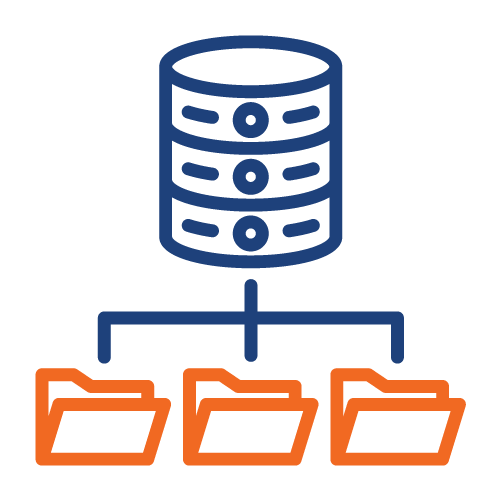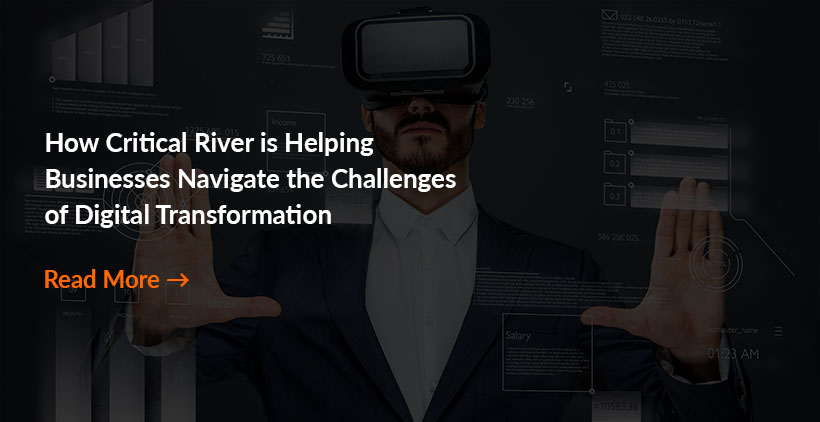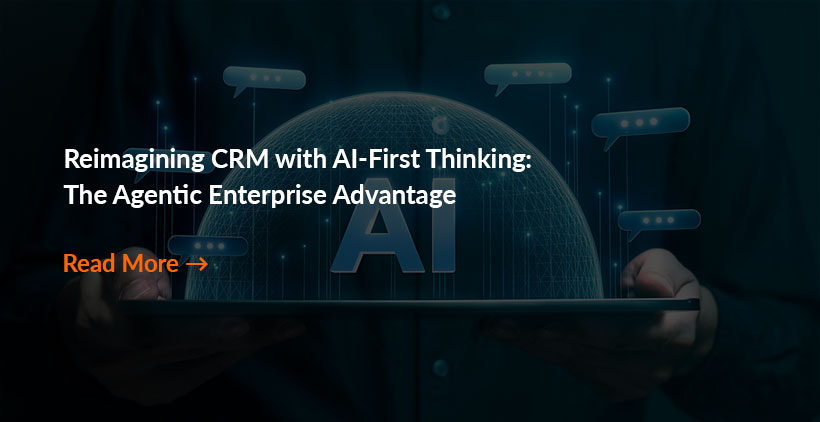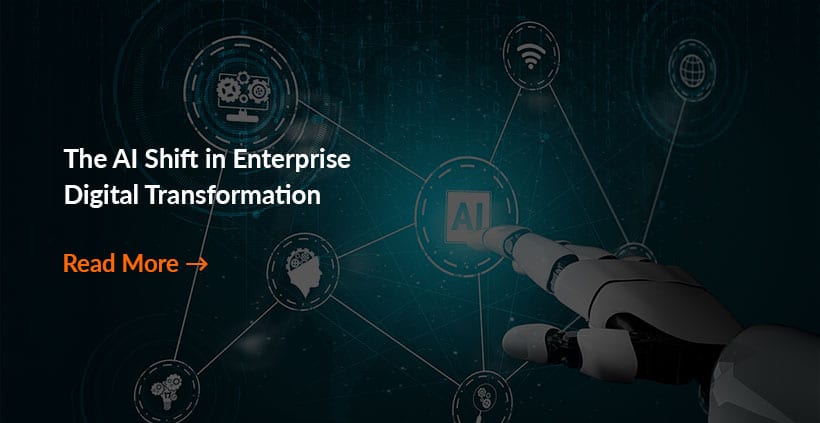
In the age of continuous innovation, digital transformation solutions are getting integrated into every aspect of business. Organizations aim to redefine their workflows with cloud computing, automation, data analytics, AI, machine learning, IoT, and other related technologies. Using tailored software and applications enables them to be more productive, agile, customer-centric, cost-effective, and resilient. Digital transformation also gives more opportunities to scale operations flexibly per market demand.
Unlock Success: Identify and Overcome Obstacles
While enterprises of all sizes across industries have invested in digitalization, long-term success for many still needs to be achieved. According to McKinsey, in 2023, while over 55% of respondents said they had completed all or most of their transformation goals, only 12% could sustain them for three years. Key challenges that affect transformation sustainability using digital technologies are:

Lack of clear strategy and goals
To set digital transformation for lasting success, it is essential first to identify business needs and goals. Key stakeholders should strategize their vision to build a 5-to-10-year plan. This includes improving customer journeys, enterprise resource management, finance and accounts, and supply chain management that generates measurable value. The transformation should be guided by a roadmap that describes the solutions and resources required to deliver change in prioritized areas. If a company needs to partner with digital transformation service providers to execute the plan, it should also have its talent bench to ensure that deployment is fully aligned to business requirements.

Legacy systems
As the benefits of cloud solutions for accessibility, software customization, scalability, and collaboration get bigger, companies need to rethink the obsolete on-premises setups still dominating their IT infrastructure. The longer these systems stay untouched, the more difficult it will become to compete with evolving technologies. The solution is to assess legacy applications’ performance and limitations, develop a modernization strategy aligned with business goals, and enable data migration to the cloud while focusing on security and compliance. Rehosting and platforming can be used to move traditional enterprise applications without major overhaul. Refactoring is the next-level approach where an application is redesigned or parts of code rewritten to make it cloud-native. Some legacy systems may need to be completely rebuilt for modern standards and architectures.

Cybersecurity risks
Inadequate attention to cybersecurity can make even the best digital enterprise transformation solutions risky. While implementing digital transformation projects, companies need to build a security-first culture. This requires emphasis on role-based access to crucial systems, data encryption at rest and in transit, and real-time monitoring of digitized processes. There should be periodic audits of IT infrastructure, comprehensive vulnerability assessments, and quick patching or updates on software systems to prevent any outage. Regular data backups are necessary to safeguard business assets against ransomware attacks. Training all employees on cyber hygiene practices and cautions against phishing attacks also helps avert cyber threats.

Data management
Collecting and protecting data while complying with regulations requires further attention beyond cybersecurity. As the amount of data collected and processed will only increase, organizations must consistently address the associated challenges. Data management team members must have clear roles and responsibilities, synchronized priorities, and transparent communication to comply with data privacy laws. Besides deploying cybersecurity measures to protect data from external threats, they can use data anonymization, cryptography, and confidential computing techniques to strengthen privacy. Responsible AI can be used to monitor and generate alerts on new global regulations.

Change management
People become used to certain ways of working over years, and any changes in their work methods or routines may lead to anxiety and dissatisfaction. End-to-end digital transformation is complex and involves a mindset shift to prevent resistance. The leadership must establish a clear vision and justification for change. Partnering with experienced digital transformation solution providers is an excellent way to train employees for new systems. Organizations can have project-specific reward and recognition policies that improve visibility and motivation to maintain momentum throughout a complex, long-term transformation journey. CriticalRiver also recommends conducting surveys and focus-group discussions after the go-live for employee feedback and overall adaptability.
Addressing the challenges of digital transformation must be followed by measuring the value it generates. The ROI must be measured against the outlined goals. An organization can track the changes in its sales and revenue before and after processes are modified. It can also look at impact on conversion rates and average value of customer transactions. Did digital initiatives help in capturing new market segments?
Another metric to measure the success of digital transformation solutions is the impact on end-user experience. Post-interaction reviews, social media and website surveys and online reviews are some ways to analyze customer sentiments. An organization can also create customer journey maps to track customers’ interactions with digital touchpoints.
Internally, the value is gauged by looking at increased employee productivity, reduced turnaround time, decreased errors, improved quality of work, and lower operational expenditure.
CriticalRiver helps businesses choose and deploy proven digital technologies to optimize operations and enhance revenue streams. Our experts help improve goals outlined in boardroom meetings, upgrade legacy systems, enhance data analytics, counter cyber threats, and train teams to maximize value generation.
To know more about our digital services for your industry, writ to us at contact@criticalriver.com.




